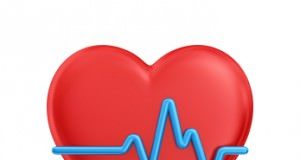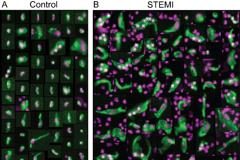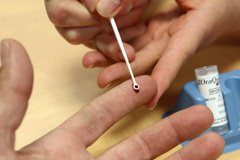New Study: Popular Antibiotic Increases Risk Of Death
Azithromycin (marketed as Zithromax) is most often prescribed to treat bronchitis, sinusitis, pneumonia, middle ear infections, and even certain sexually transmitted diseases. It can produce skin rashes, itching, swelling, difficulty breathing or swallowing, and rapid, pounding, or irregular heartbeats.
Hunter-Gatherers And Horticulturalist Lifestyle Linked To Lower Blood Pressure Increases, Atherosclerosis...
Traditional "hunter-gatherer" and "horticulturalist" populations have significantly lower age-related increases in blood pressure and less risks of atherosclerosis than "modernized" populations. Lifestyle factors of these traditional populations -- high physical activity and high fruit and vegetable diets -- may protect against normal aging phenomena, high blood pressure and hardening of the arteries.
Exercise Slows Muscle Wasting From Age And Heart Failure
Exercise can counteract muscle breakdown, increase strength and reduce inflammation caused by aging and heart failure, according to new research in Circulation,...
Eating Flavonoids Protects Men Against Parkinson’s Disease, Study Finds
Men who eat flavonoid-rich foods such as berries, tea, apples and red wine significantly reduce their risk of developing Parkinson's disease, according to new research by Harvard University and the University of East Anglia. Published April 4 in the journal Neurology®, the findings add to the growing body of evidence that regular consumption of some flavonoids can have a marked effect on human health.
New Way To Abate Heart Attacks Before Patients Get To The...
Paramedics can reduce someone's chances of having a cardiac arrest or dying by 50 percent by immediately administering a mixture of glucose, insulin and potassium ("GIK") to people having a heart attack, according to research presented March 27 at the American College of Cardiology's 61st Annual Scientific Session.
High Blood Sugar Lowers Chances Of Surviving A Heart Attack
Patients with high blood sugar run an increased risk of dying if they have a heart attack, and diabetics are less likely to survive in-hospital cardiac arrest than non-diabetics, reveals research at the Sahlgrenska Academy, at the University of Gothenburg, Sweden.
Doctors Find Clue In Quest To Predict Heart Attack
Too often, people pass a cardiac checkup only to collapse with a heart attack days later. Now scientists have found a clue that one day may help doctors determine if a heart attack is imminent, in hopes of preventing it. Most heart attacks happen when fatty deposits in an artery burst open, and a blood clot then forms to seal the break. If the clot is too big, it blocks off blood flow.
Blood Test Could Predict Heart Attacks: US Study
US researchers have found oddly-shaped blood cells in heart attack patients, indicating that a blood test could help predict whether a patient is at risk of an imminent cardiac emergency.The study by the Scripps Translational Science Institute (STSI) found that the endothelial blood cells from heart attack patients are abnormally large and misshapen, sometimes appearing with multiple nuclei.
Heart Attacks Rise Following Daylight Saving Time
Daylight-saving time this year begins March 11, and while we all might look forward to another hour of sunshine a University of Alabama at Birmingham expert says the time change is not necessarily good for your health. "The Monday and Tuesday after moving the clocks ahead one hour in March is associated with a 10 percent increase in the risk of having a heart attack," says UAB Associate Professor Martin Young, Ph.D., in the Division of Cardiovascular Disease.
Heart Disease May Be A Risk Factor For Prostate Cancer
In a large analysis of men participating in a prostate drug trial, researchers at the Duke Cancer Institute found a significant correlation between coronary artery disease and prostate cancer, suggesting the two conditions may have shared causes.
Erratic Heart Rhythm May Account For Some Unexplained Strokes
Occasional erratic heart rhythms appear to cause about one-fifth of strokes for which a cause is not readily established, according to research presented at the American Stroke Association's International Stroke Conference 2012.About one-third of survivors leave the hospital with the cause of their stroke still undetermined.
Newly Identified Oral Bacterium Linked To Heart Disease And Meningitis
A novel bacterium, thought to be a common inhabitant of the oral cavity, has the potential to cause serious disease if it enters the bloodstream, according to a study in the International Journal of Systematic and Evolutionary Microbiology. Its identification will allow scientists to work out how it causes disease and evaluate the risk that it poses.
















